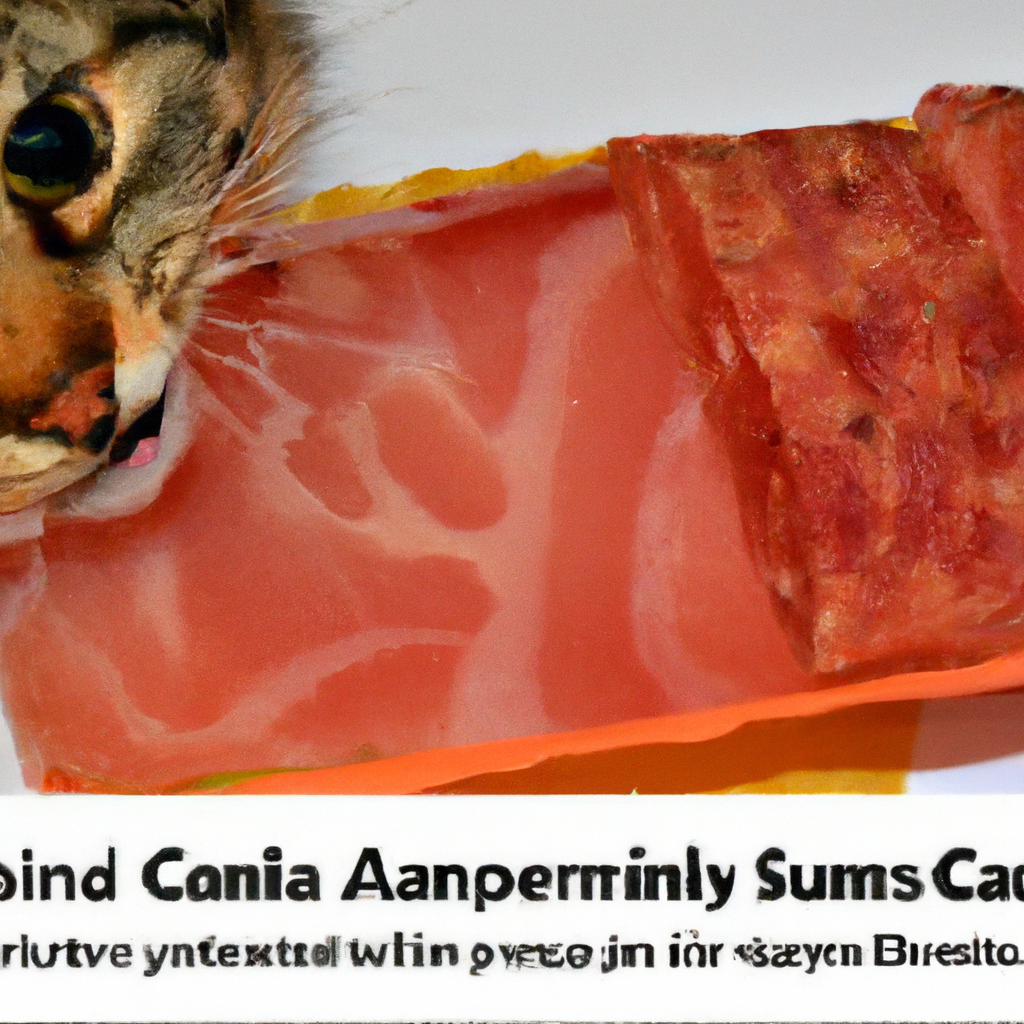Hey there cat lovers! Ever wondered if your feline friend can enjoy the deliciousness of salami? Well, you’re in luck because today we’re going to explore whether cats can indulge in this tasty treat. Salami is a popular delicacy among humans, but can it be a safe and enjoyable snack for our furry companions? Let’s find out if cats can have salami and what precautions we should take to ensure their health and happiness.
Can Cats Have Salami?


Overview of Cats’ Diet
As a cat owner, it’s important to understand the dietary needs of your feline friend. Cats are obligate carnivores, which means that their bodies are designed to thrive on a diet that consists primarily of meat. Their bodies have specific nutritional requirements that are different from those of humans or dogs. A balanced diet for cats includes high-quality protein, essential fatty acids, certain vitamins, and minerals.
Understanding Salami
Salami is a type of cured sausage made from fermented and air-dried meat, typically pork. It is seasoned with various spices and herbs, giving it a distinctive flavor. While it may be a savory treat for humans, it is essential to consider the potential risks before offering salami to your cat.
Potential Risks of Feeding Salami to Cats
Although cats are carnivores, not all meats are suitable for their consumption. Salami, in particular, can pose several risks to your cat’s health due to its high sodium and fat content, as well as potential harmful ingredients. It’s crucial to be aware of these risks to make informed decisions about what foods you should and shouldn’t give to your feline companion.


Individual Sensitivities and Allergies
Like humans, cats can develop sensitivities and allergies to certain foods. While some cats may tolerate small amounts of salami without any issues, others may experience adverse reactions. These reactions can range from digestive issues such as diarrhea or vomiting to skin irritation or even more severe allergic reactions. It’s important to pay attention to your cat’s individual response to any new food, including salami, and consult with your veterinarian if you notice any adverse effects.
Digestive System Challenges
Cats have sensitive digestive systems that may not be equipped to handle certain types of foods. Salami is a processed meat product that often contains high levels of fat, spices, and preservatives. These ingredients can be challenging for a cat’s digestive system to break down and may lead to gastrointestinal discomfort, such as upset stomach, diarrhea, or pancreatitis. Feeding your cat salami on a regular basis can put an unnecessary strain on their digestive system and potentially lead to long-term health issues.
High Sodium and Fat Content
Salami is known for its rich flavor, but this often comes at a cost. The high sodium content in salami can be harmful to cats, as their bodies are not designed to process large amounts of salt. Consumption of excessive sodium can lead to dehydration, increased thirst, and even kidney problems. Additionally, the high fat content in salami can contribute to obesity in cats, which can lead to a host of other health problems, such as diabetes, heart disease, and joint issues.
Potential Harmful Ingredients
Many types of salami contain additional ingredients that can be harmful to cats. Some of these ingredients include garlic and onion, which are toxic to felines and can damage their red blood cells. Other potential harmful additives include nitrates and nitrites, which are commonly used as preservatives in processed meats. These compounds have been linked to the development of certain types of cancer and should be avoided in your cat’s diet.
Alternatives for Treating Cats
If you’re looking for enjoyable treats and alternatives to salami for your feline companion, there are plenty of options available. There are specially formulated cat treats on the market that are designed to provide the nutrients and flavors that cats enjoy, without any of the potential risks associated with human food. Additionally, you can explore other safe options such as small pieces of cooked chicken or fish, freeze-dried meat treats, or even commercial cat treats made specifically for the dietary needs of cats.
Consulting with a Veterinarian
When it comes to your cat’s diet, it’s always a good idea to consult with your veterinarian. They can provide personalized advice based on your cat’s individual needs and help you choose the most suitable food options. Your veterinarian may recommend specific brands of cat treats that are safe and healthy for your feline friend. Always remember to discuss any concerns or questions you have about feeding certain foods, like salami, to your cat.
Conclusion
While cats are carnivores and thrive on a meat-based diet, it’s important to be cautious about which meats you offer them. Salami, with its high sodium and fat content, potential harmful ingredients, and digestive challenges, is not a suitable food for cats. It’s crucial to prioritize your cat’s health and well-being by ensuring they receive a balanced and species-appropriate diet. If you have any concerns or questions about your cat’s diet, don’t hesitate to reach out to your veterinarian for professional guidance.

